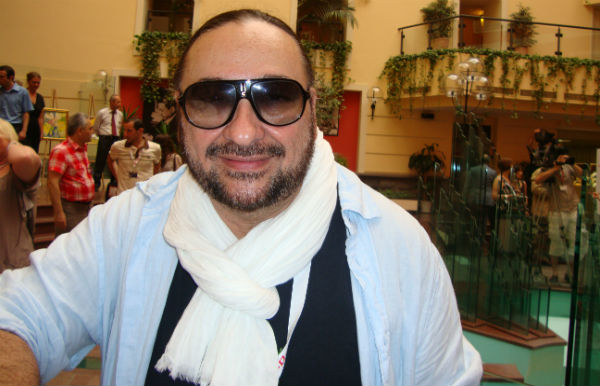
There’s a huge omission in Armenian media — especially in Armenian cinema. The information sent from Armenia to the world doesn’t get anywhere. Especially few are human stories, which are welcomed and loved by foreign audiences. For example, we understand ourselves in our cinema, but foreigners don’t understand us.
At the end of the day, cinema has to tell a story that those who know nothing about Armenians or Armenia will perceive it as artistic work, will understand it, and will share their emotions with the main characters. For cinema-goers it doesn’t matter if what they see is Armenian, Chinese or French, what’s important is that they understand and accept it. I think, Russian films, which sometimes are not understood by foreigners, also have this shortcoming.
Say, I watch a film produced in Armenia and I understand the reference to the Karabakh conflict, but an average French viewer (neither very progressive nor super-intellectual) undoubtedly will ask, ok, but what is Karabakh? Where is it? Is it a man or a dog?
What I’m trying to say is that there’s a lack of communication, especially visual communication. It’s very important to fill this gap, since exchanging video information has now become easier and faster through the Internet. Documentary and short films are the best means of communication.
Now, no one will go to the movie theatre to watch a documentary but will watch it with pleasure online or on television. Of course, sometimes we come across interesting content, but we have to make such occurrences as frequent as possible.
That is, to saturate the Internet and television airwaves with reports and films describing Armenians. And by the way, it’s better to place a person and not abstract forces in the center of a film.
The French, for example, often complain that their newspapers are overly politicized. Generally, the media dominates in France, especially during the elections, when manipulation of public opinion is needed. I think, commonly around the world media has become a tool of manipulation: CNN has its angle; Al Jazeera, its own.
Recently, for example, Al Jazeera produced a film about the Armenian Genocide, which simply reflected the Turkish point of view. A horrible film, which watching it, you immediately understand how manipulation on television occurs.
For example, they show Hrant Dink speaking about Armenian-Turkish friendship, while in the next shot they note that this man was killed for his remarks. And the viewer certainly is left with the impression that Dink was murdered not by Turks but by an Armenian zealot who hates Turks.
Of course, it’s understandable that to disseminate your view in the international media power and money is necessary — great power and a great deal of money… We don’t have that power, but Turkey does. I can say that there’s very little Armenian presence on French television — though that’s not the worst scenario. In American television, for example, there’s practically no Armenian trace (if we don’t take into account Los Angeles).
Finally, television creates an image of the country. And in that sense Armenia has a good image in France; put differently, positive and pleasant. Armenians in general have a good reputation in France, and that shows in the media.
I can’t speak about television in Armenia, since while I’m here I practically don’t watch TV. I think, just as everywhere, here too there are interesting things as well as banalities. I know that many [in Armenia] watch soap operas — the characters, it seems, having become members of their family. I think, that too is needed.
But I am deeply convinced that the best means of communication has always been theatre, to which cinema was later added. Today, it is cinema that has the most significant impact. It helps people to get to know each other, to make contact and sympathize with one another.
It’s unfortunate that cinema doesn’t have this same impact in Armenia. After all, it’s needed to tell our story (our pain, our burden, our joy) to the world.
When I work in French or American theatres, I prefer the work of Armenian authors that are translated into French or English and are interesting particularly for non-Armenian audiences.
I’ve staged the Anoush opera (at the Michigan Opera Theatre) and Gariné operetta (in Paris), which were sung, performed, and applauded by non-Armenians.
I place greater importance on presenting what you have in different languages than inviting a big theatre troupe or orchestra from Armenia on tour. Localizing the best you have to offer and placing it in an international context is the story of creating communication.
Powerful states, understanding the power of communicative arts, invest large sums of money in film production and financing theatres. I would like for Armenia to do the same.
Zhirayr Papazian
Theatre and film actor
Paris, France
The views expressed in the column are those of the author's and do not necessarily reflect the views of Media.am.

Add new comment
Comments by Media.am readers become public after moderation. We urge our readers not to leave anonymous comments. It’s always nice to know with whom one is speaking.
We do not publish comments that contain profanities, non-normative lexicon, personal attacks or threats. We do not publish comments that spread hate.